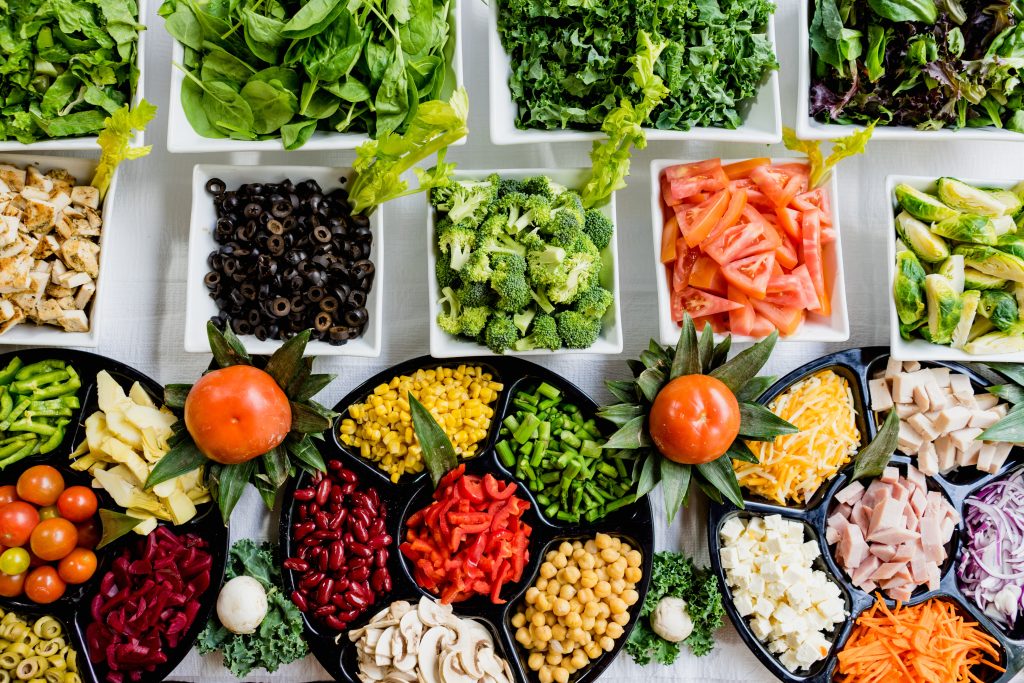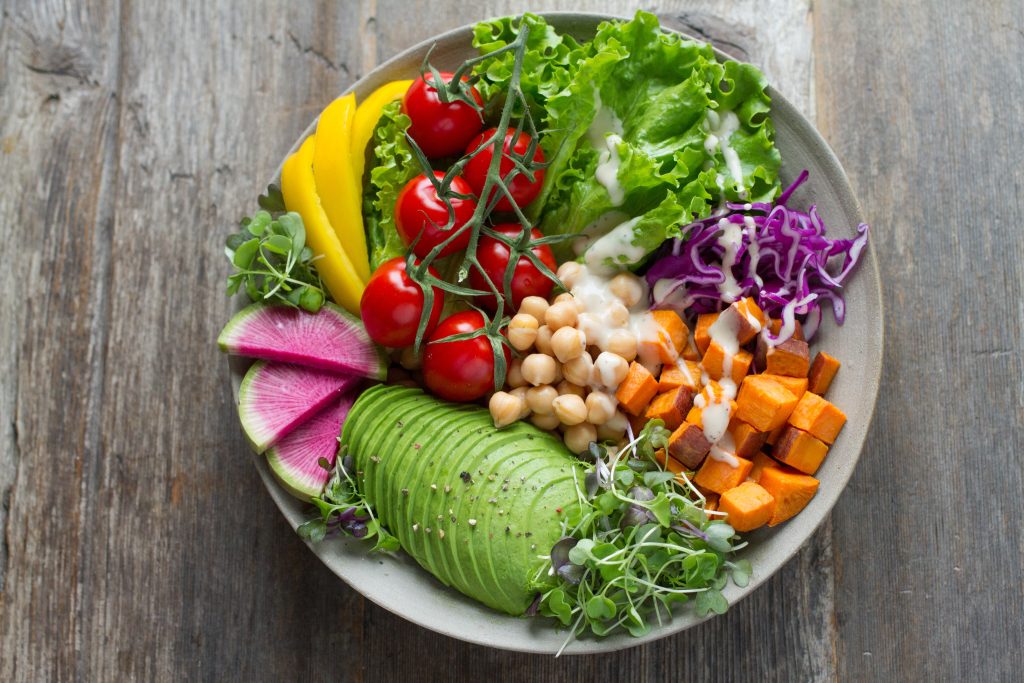Eating healthy is one of the most important things you can do for your overall health and well-being. When you eat healthy foods, you give your body the nutrients it needs to function properly and protect yourself from chronic diseases.
Here is a comprehensive guide to eating healthy:
1. Eat plenty of fruits and vegetables.
Fruits and vegetables are packed with vitamins, minerals, and antioxidants that are essential for good health. Aim to eat at least five servings of fruits and vegetables each day. A serving is about half a cup of cooked vegetables or one piece of fruit.
Here are some tips for getting more fruits and vegetables in your diet:
- Add fruits and vegetables to every meal. For example, you could start your day with a bowl of oatmeal with berries and nuts, or have a salad with grilled chicken or fish for lunch.
- Snack on fruits and vegetables throughout the day. Keep a bowl of fresh fruit on your counter or desk, or pack a piece of fruit in your lunchbox.
- Make smoothies or juices with your favorite fruits and vegetables.
- Add frozen fruits and vegetables to your cooking and baking.
2. Choose whole grains over refined grains.
Whole grains are a good source of fiber, which can help you feel full and satisfied after eating. They also contain more nutrients than refined grains. When choosing bread, pasta, rice, and other grains, look for products that are made with whole grains.
Here are some tips for choosing whole grains:
- Look for the word “whole” on the food label.
- Avoid foods that are made with white flour, such as white bread, white rice, and white pasta.
- Choose whole-wheat bread, brown rice, and quinoa over refined grains.
- Add oats, oatmeal, and barley to your diet.
3. Choose lean protein sources.
Protein is essential for building and repairing muscle tissue. Good sources of lean protein include chicken, fish, beans, lentils, nuts, and seeds.

Here are some tips for choosing lean protein sources:
- Choose lean cuts of meat, such as chicken breast, turkey breast, and fish.
- Remove the skin from poultry before cooking.
- Bake, grill, or broil meat and fish instead of frying it.
- Choose beans, lentils, nuts, and seeds as plant-based sources of protein.
4. Limit saturated and unhealthy fats.
Saturated and unhealthy fats can raise your cholesterol levels and increase your risk of heart disease. Limit your intake of saturated fats by choosing lean protein sources and avoiding processed foods. Limit your intake of unhealthy fats by avoiding fried foods, fatty meats, and full-fat dairy products.
Here are some tips for limiting saturated and unhealthy fats:
- Choose lean protein sources, such as chicken breast, turkey breast, and fish.
- Remove the skin from poultry before cooking.
- Bake, grill, or broil meat and fish instead of frying it.
- Choose beans, lentils, nuts, and seeds as plant-based sources of protein.
- Avoid processed foods, such as fast food, frozen meals, and packaged snacks.
- Limit your intake of full-fat dairy products. Choose low-fat or fat-free dairy products instead.
5. Limit added sugar.
Added sugar is a major source of empty calories in the diet. It can also contribute to weight gain, tooth decay, and other health problems. Limit your intake of added sugar by avoiding sugary drinks, candy, and processed foods.
Here are some tips for limiting added sugar:
- Avoid sugary drinks, such as soda, juice, and sports drinks.
- Choose water, unsweetened tea, or coffee instead.
- Limit your intake of candy and other sweets.
- Avoid processed foods, such as cookies, cakes, and cereal.
- Read food labels carefully and avoid foods that contain added sugar.
6. Eat regular meals and snacks.
Eating regular meals and snacks can help you maintain a healthy blood sugar level and prevent overeating. Aim to eat three meals and two snacks each day.
Here are some tips for eating regular meals and snacks:
- Plan your meals and snacks ahead of time.
- Keep healthy snacks on hand, such as fruits, vegetables, nuts, and seeds.
- Avoid skipping meals.
- Don’t wait until you’re starving to eat.

7. Cook at home more often.
Cooking at home allows you to control the ingredients in your food and avoid processed foods. It’s also a great way to save money.
Here are some tips for cooking at home more often:
- Plan your meals ahead of time.
- Make a grocery list and stick to it.
- Cook in bulk so you have leftovers for lunch or dinner the next day.
- Find easy and healthy recipes that you and your family enjoy.
- Make cooking fun! Put on some music, pour yourself a glass of wine, and enjoy the process.
8. Be mindful of your portion sizes.
It’s easy to overeat when you’re not paying attention to your portion sizes. Use smaller plates and bowls to help you control your portions.
Here are some tips for being mindful of your portion sizes:
- Eat slowly and savor your food.
- Put down your fork or spoon between bites.
- Stop eating when you’re full.
9. Don’t be afraid to make mistakes.
Everyone slips up from time to time. If you have an unhealthy meal, don’t beat yourself up about it. Just pick yourself up and start again the next day.
Here are some tips for getting back on track after an unhealthy meal:
- Drink plenty of water.
- Eat plenty of fruits and vegetables.
- Get some exercise.
- Get enough sleep.
Eating healthy is a journey, not a destination. It’s important to be patient and kind to yourself along the way. By following these tips, you can make healthy choices that will benefit your overall health and well-being.







